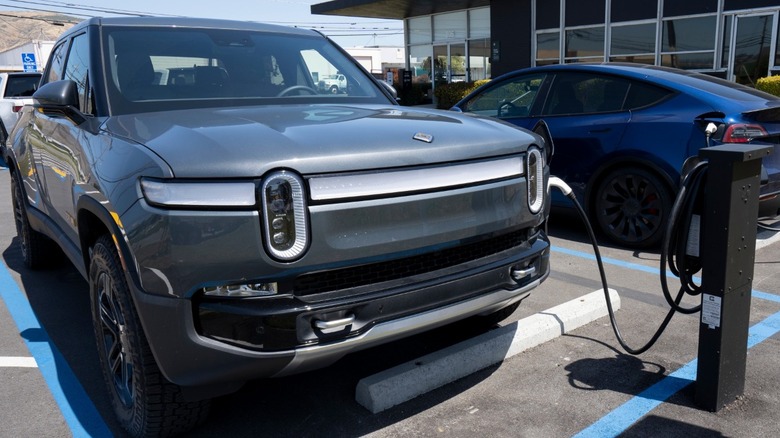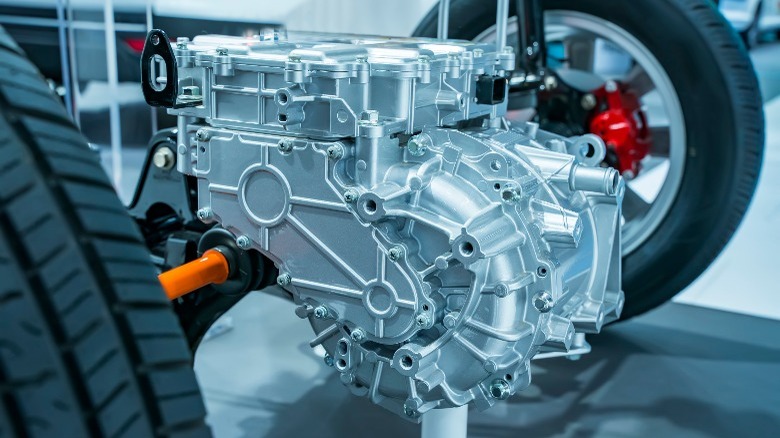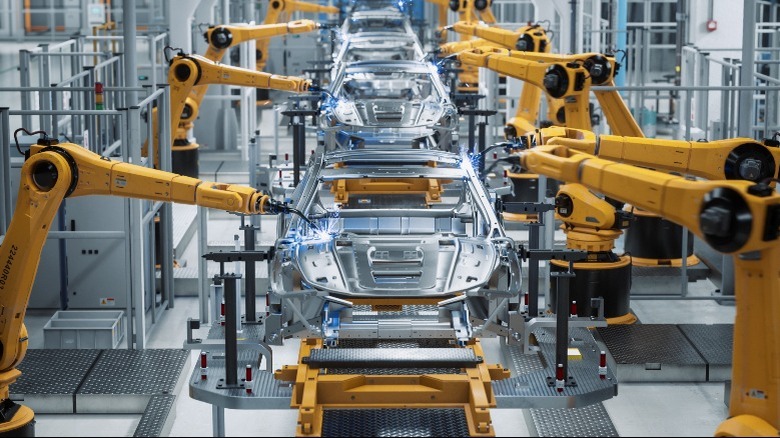Why Electric Cars Are More Likely To Be Recalled Than Gas Cars
If you're unfamiliar with the concept, a product recall is when a manufacturer realizes that there is a problem with a product or component — whether the problem relates to serious issues like safety, or simply performance and early wear — and issues a notice to buyers of the defective product informing them of the issue and providing recourse. Usually, when a recall happens in motor vehicles, the vehicle is to be taken to the nearest service station as soon as possible to have the defective component replaced or inspected for defects.
Product recalls happen from time to time — no matter how much testing you put into development, cars and motor vehicles are incredibly complex, and you can't possibly anticipate every use case and simulate every possibility. Electric vehicles are often praised as superior because they're simpler, and therefore require less maintenance. By that logic, you might think that EVs would be less likely to be recalled or experience problems. You would be wrong. According to J.D. Power, owners of electric vehicles reported an average of 240 problems per 100 vehicles, while owners of internal combustion engine vehicles reported an average of 175 problems per 100 vehicles.
Most EV issues are not drivetrain-related
With high-profile recalls like the Chevrolet Bolt EV and EUV battery situation, it may be surprising to learn that most EV issues are not related to the drive or power systems at all. That's good news, considering the motor and battery components could cause serious safety concerns if they're defective. According to a user survey in Consumer Reports' Insights for More Reliable Electric Vehicles, the most common problem area for 2021 model year EVs was in-car electronics, followed by the climate system, with the major engine issues category only coming in at eighth place.
Most electric vehicle problems are for equipment not related to the drivetrain (motors, batteries, and cooling), with EV powertrain issues being half as common for 2021 model-year vehicles than ICE drivetrain issues in the same year (with EV owners reporting a problem rate of 0.17 for serious engine troubles, and ICE vehicle owners experiencing a problem rate of 0.36). Looking further back, though, things become a little more dire for electric vehicles, with serious engine problem rates for 2019 EVs becoming 2.5 times more common than drive system issues in ICE vehicles in the same year.
Increased EV problems may be a temporary problem
Consumer Reports' Insights for More Reliable Electric Vehicles and J.D. Power's 2022 U.S. Initial Quality Studies both indicate that, while EV issues were high between 2019 and 2022, this may be a temporary situation with a reasonable explanation. One part of the problem, as explained by J.D. Power, is the COVID-19 pandemic and the resulting supply-chain closures, which are already starting to abate as the world recovers.
Perhaps more concerning is that, as Consumer Reports states, many of the issues relating to EV recalls stem from the disruptive and innovative features that many EV makers include in their vehicles. While it's normal for new technology to have unforeseen issues and kinks to work out, it means automakers will have to step up their quality control and research and development departments to deal with the added complexity and technology of new vehicles.
While it may be disheartening to know that the electric vehicle market is experiencing somewhat of a hiccup due to recalls and quality control, it's important to note that it's really still the early days of EVs and those kinks will probably iron out with time as the supply chain, quality control, and regulations catch up.


